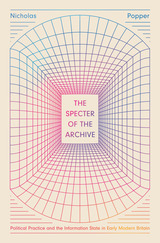5 books about Autonomy (Psychology)
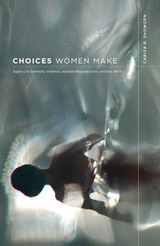
Choices Women Make
Agency in Domestic Violence, Assisted Reproduction, and Sex Work
Carisa R. Showden
University of Minnesota Press, 2010
Women’s agency: Is it a matter of an individual’s capacity for autonomy? Or of the social conditions that facilitate freedom? Combining theoretical and empirical perspectives, Carisa R. Showden investigates what exactly makes an agent and how that agency influences the ways women make inherently sensitive and difficult choices—specifically in instances of domestic violence, assisted reproduction, and sex work.
In Showden’s analysis, women’s agency emerges as an individual and social construct, rooted in concrete experience, complex and changing over time. She traces the development and deployment of agency, illustrating how it plays out in the messy workings of imperfect lives. In a series of case studies, she considers women within situations of intimate partner violence, reproductive decision making, and sex work such as prostitution and pornography. Each narrative offers insight into how women articulate their self-understanding and political needs in relation to the pressures they confront.
Showden’s understanding of women’s agency ultimately leads her to review possible policy and legal interventions that could improve the conditions within which agency develops and that could positively enhance women’s ability to increase and exercise their political and personal options.
[more]
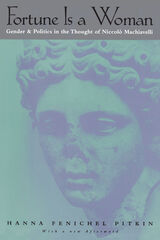
Fortune Is a Woman
Gender and Politics in the Thought of Niccolo Machiavelli
Hanna Fenichel Pitkin
University of Chicago Press, 1999
"Fortune is a woman, and if you want to keep her under, you've got to knock her around some."—Niccolò Machiavelli
Hanna Pitkin's provocative and enduring study of Machiavelli was the first to systematically place gender at the center of its exploration of his political thought. In this edition, Pitkin adds a new afterword, in which she discusses the book's critical reception and situates the book's arguments in the context of recent interpretations of Machiavelli's thought.
"A close and often brilliant exegesis of Machiavelli's writings."—The American Political Science Review
Hanna Pitkin's provocative and enduring study of Machiavelli was the first to systematically place gender at the center of its exploration of his political thought. In this edition, Pitkin adds a new afterword, in which she discusses the book's critical reception and situates the book's arguments in the context of recent interpretations of Machiavelli's thought.
"A close and often brilliant exegesis of Machiavelli's writings."—The American Political Science Review
[more]

Respecting Patient Autonomy
Benjamin H. Levi
University of Illinois Press, 1999
Against a backdrop of real clinical situations, Benjamin H. Levi examines the dynamics that shape relations between patient and health care provider, addressing fundamental questions about how medical decisions should be reached and compelling the reader to think about health care issues and decisions in terms of the values and goals they promote.
Presenting bioethics as a practical, educational activity rather than an abstract intellectual exercise, this important volume shows how dialogue between patients and health care providers can clarify both medical and ethical issues, promoting patient autonomy and advancing health care.
Presenting bioethics as a practical, educational activity rather than an abstract intellectual exercise, this important volume shows how dialogue between patients and health care providers can clarify both medical and ethical issues, promoting patient autonomy and advancing health care.
[more]
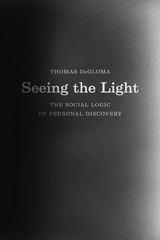
Seeing the Light
The Social Logic of Personal Discovery
Thomas DeGloma
University of Chicago Press, 2014
The chorus of the Christian hymn “Amazing Grace” reads, “I once was lost, but now am found, / Was blind but now I see.” Composed by a minister who formerly worked as a slave trader, the song expresses his experience of divine intervention that ultimately caused him to see the error of his ways. This theme of personal awakening is a feature of countless stories throughout history, where the “lost” and the “blind” are saved from darkness and despair by suddenly seeing the light.
In Seeing the Light, Thomas DeGloma explores such accounts of personal awakening, in stories that range from the discovery of a religious truth to remembering a childhood trauma to embracing a new sexual orientation. He reveals a common social pattern: When people discover a life-changing truth, they typically ally with a new community. Individuals then use these autobiographical stories to shape their stances on highly controversial issues such as childhood abuse, war and patriotism, political ideology, human sexuality, and religion. Thus, while such stories are seemingly very personal, they also have a distinctly social nature. Tracing a wide variety of narratives through nearly three thousand years of history, Seeing the Light uncovers the common threads of such stories and reveals the crucial, little-recognized social logic of personal discovery.
In Seeing the Light, Thomas DeGloma explores such accounts of personal awakening, in stories that range from the discovery of a religious truth to remembering a childhood trauma to embracing a new sexual orientation. He reveals a common social pattern: When people discover a life-changing truth, they typically ally with a new community. Individuals then use these autobiographical stories to shape their stances on highly controversial issues such as childhood abuse, war and patriotism, political ideology, human sexuality, and religion. Thus, while such stories are seemingly very personal, they also have a distinctly social nature. Tracing a wide variety of narratives through nearly three thousand years of history, Seeing the Light uncovers the common threads of such stories and reveals the crucial, little-recognized social logic of personal discovery.
[more]
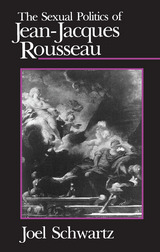
The Sexual Politics of Jean-Jacques Rousseau
Joel Schwartz
University of Chicago Press, 1984
Joel Schwartz presents the first systematic treatment of Rousseau's understanding of the political importance of women, sexuality, and the family. Using both Rousseau's lesser-known literary works and such major writings as Emile, Julie, and The Second Discourse, he offers an original and provocative presentation of Rousseau's argument. To read Rousseau, Schwartz believes, is to enter into a profound discourse about the meaning of sexual equality and the opportunities, pitfalls, costs, and benefits that sexual relationships bestow and impose on us all. His own thoughtful reading of Rousseau opens up fresh perspectives on political philosophy and the history of sexual, masculine, and feminine psychology.
[more]
READERS
Browse our collection.
PUBLISHERS
See BiblioVault's publisher services.
STUDENT SERVICES
Files for college accessibility offices.
UChicago Accessibility Resources
home | accessibility | search | about | contact us
BiblioVault ® 2001 - 2024
The University of Chicago Press




